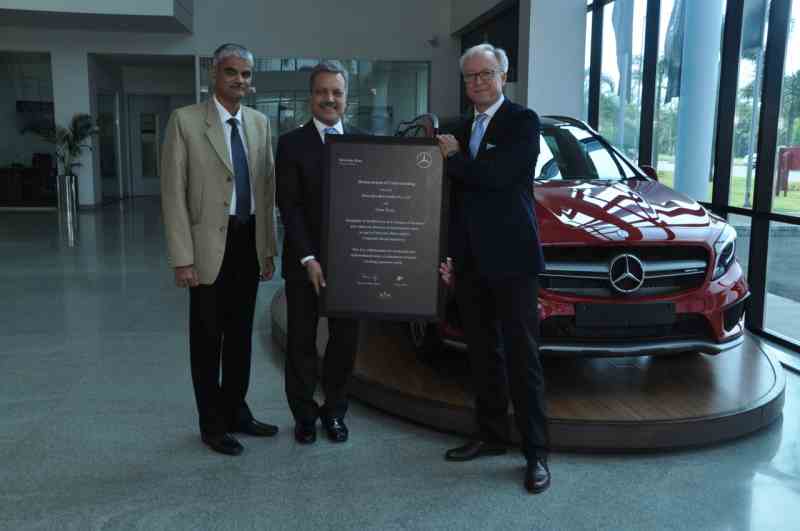
Mercedes-Benz India have launched an afforestation initiative in partnership with Grow Trees. This social initiative has seen the company plant 50,000 trees in eight villages in Maharashtra.
Mercedes-Benz have planted 50,000 trees through this initiative across eight villages covering two districts of Yavatmal and Amravati in Maharashtra. These districts have had to deal with effects of drought and climate change in recent years due to the rise of global warming and environmental pollution. The plantation of these trees will allow newly grown vegetative cover, as well as increase the fertility of the soil. The plantation of these trees has covered 1,680 acres of land. The activity is aimed to benefit the tribal communities living in these villages. Mercedes-Benz India will also present a certificate for 10 trees to each customer targeting an overall base of 5,000 customers, making them aware about the ecological challenges and spreading the message of environmental awareness.
Talking about this initiative, Roland Folger, Managing Director & CEO, Mercedes-Benz India commented, “Mercedes-Benz has always been an environmental conscious automotive brand. We want our customers and citizens in general to be aware about the environmental challenges like global warming and ecological changes. We have planted 50,000 trees that will offset the carbon footprint of our production process. The plantation will bring significant changes in the lives of the villagers who will not only find a livelihood, but will also benefit from the increased vegetation in the area. This initiative will further create awareness about the ecological benefits of afforestation, thus contributing to environmental sustenance.”
On the occasion of signing the MoU, Pradip P. Shah, Chairman, Grow Trees said, “The association of Grow Trees and Mercedes-Benz India is another step which enhances our efforts towards creating a greener planet. Grow Trees has been committed towards regeneration of degraded forests and on extending vegetative cover on the uplands to reduce and reverse the devastating effects of soil erosion and run off of water. This project not only addresses such issues, but will also enhance the environmental conditions in the area but also provide indirect empowerment to rural-tribal communities in the nursery stage.”
Story: Sahej Patheja



















Leave a Reply